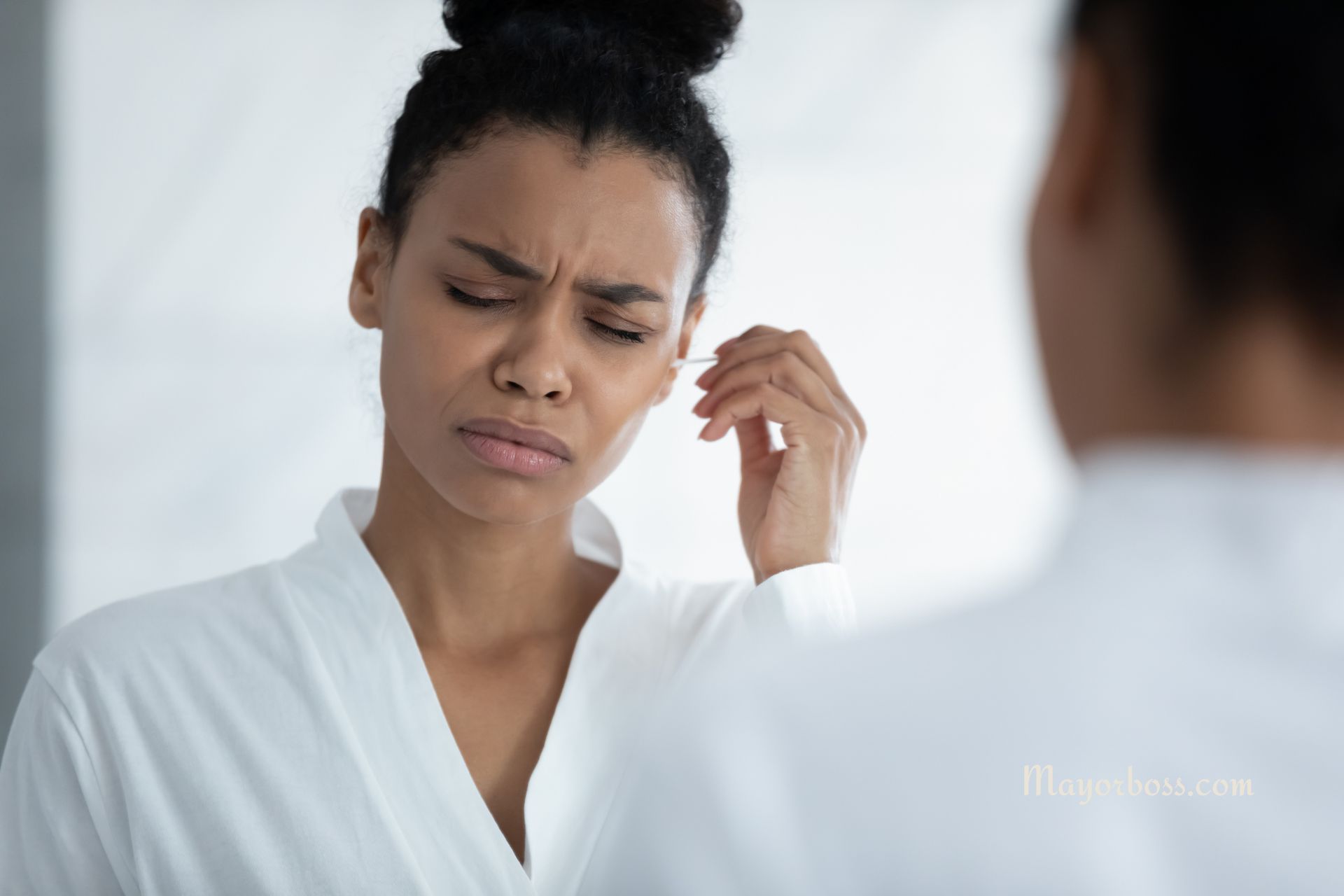Your Earwax Smells Bad? Here’s Why (You Won’t Believe It)
Earwax, medically known as cerumen, is a naturally occurring, waxy substance produced in your ear canal. It serves important purposes like protecting your ears from dust and debris, lubricating the ear canal, and even trapping bacteria. While earwax usually has a mild odor, sometimes it can smell surprisingly foul.
If you’ve ever wondered why your earwax might smell bad, here’s the scoop!

Why Does Earwax Smell?
Earwax is like a complex recipe – here’s what goes into it:
- Dead skin cells: Your ear canal constantly sheds skin, and these dead cells become part of your earwax.
- Secretions from glands: Your ear canal has two types of glands:
- Sebaceous glands, which produce oil (sebum)
- Ceruminous glands, which produce a watery substance
- Trapped Debris: Dust, dirt, hair, and other tiny things can get caught in the sticky earwax.
The specific combination of these components, along with the natural bacteria present in your ears, determines the odor of your earwax.
What Causes Bad-Smelling Earwax?
Here are the most common culprits behind unpleasant-smelling earwax:
- Ear Infections: Infections inside your ear canal (swimmer’s ear or otitis media) often lead to a foul-smelling, pus-like discharge that mixes with earwax.
- Excess Earwax Buildup: When earwax builds up excessively, it creates an environment where bacteria can thrive. This can give earwax a stronger odor than usual.
- Foreign Objects: If a small object gets trapped in the ear canal, like a bead or a piece of food, it can mix with earwax and start to decompose, leading to a bad odor.
- Cholesteatoma: This is a non-cancerous skin growth that can develop in the middle ear. It can produce a smelly discharge that mixes with earwax.
- Dietary Influences: While not fully proven, some people report that certain foods, like dairy or spices, might influence their earwax odor.
- Sweat and Skin Conditions: Sweat from exercise or certain skin conditions can mix with earwax and contribute to an unpleasant smell.
How Can I Tell if the Smell Is a Problem?
A slightly musty or waxy smell from your earwax is likely normal. However, if you notice any of these changes, it’s time to visit your doctor:
- Strong, persistent foul odor: This can be a symptom of infection.
- Accompanied by pain or discharge: These could also point towards an ear infection.
- Hearing Changes: Especially if your hearing is muffled or accompanied by discharge.
What Can I Do About Bad-Smelling Earwax?
- Keep Your Ears Clean (But Not Too Clean): Wipe the outside of your ears with a damp washcloth when you shower, but avoid sticking anything inside your ear canal. Q-tips, cotton swabs, or other objects can push earwax further in, leading to impaction.
- Earwax Softening Drops: If your doctor recommends it, over-the-counter earwax removal drops can help soften any existing wax.
- Never Try to Irrigate Your Ears Yourself: Ear irrigation should be performed by a healthcare professional.
- See Your Doctor: If you suspect an infection, have a persistent odor, or have other concerns, don’t hesitate to visit a doctor.
Frequently Asked Questions
1. Do ear candles work to remove earwax?
No. Ear candling is not only ineffective, but it can also be dangerous. It carries a risk of burns, earwax blockage, and even eardrum perforation.
2. Is it okay to use hydrogen peroxide to clean my ears?
Use hydrogen peroxide only if recommended by your doctor. While it can help soften earwax, it can also be irritating if used improperly or too frequently.
3. Should I be worried if my earwax smells?
A slight odor is usually normal. However, a persistent foul smell, especially with other symptoms, should be checked by a doctor to rule out infection or other problems.
